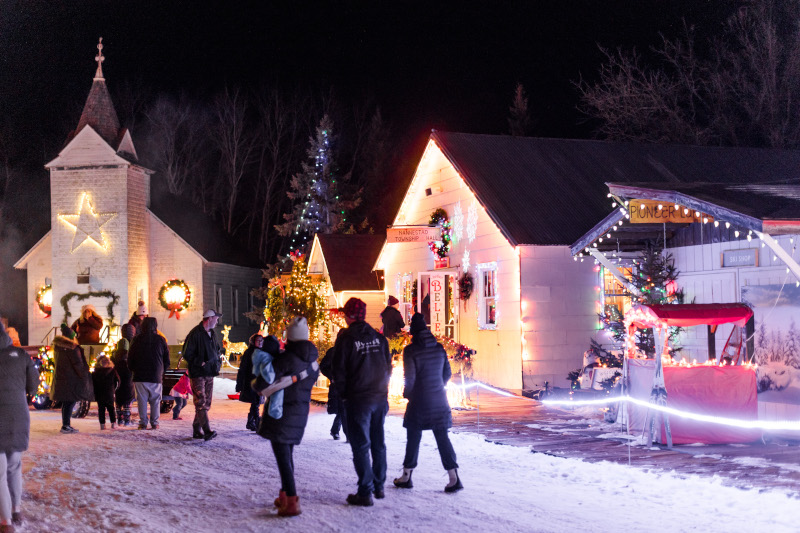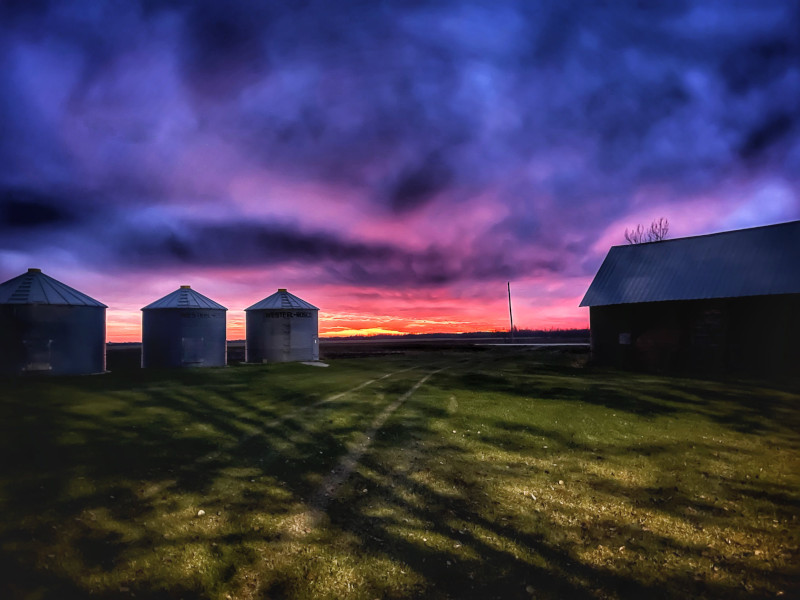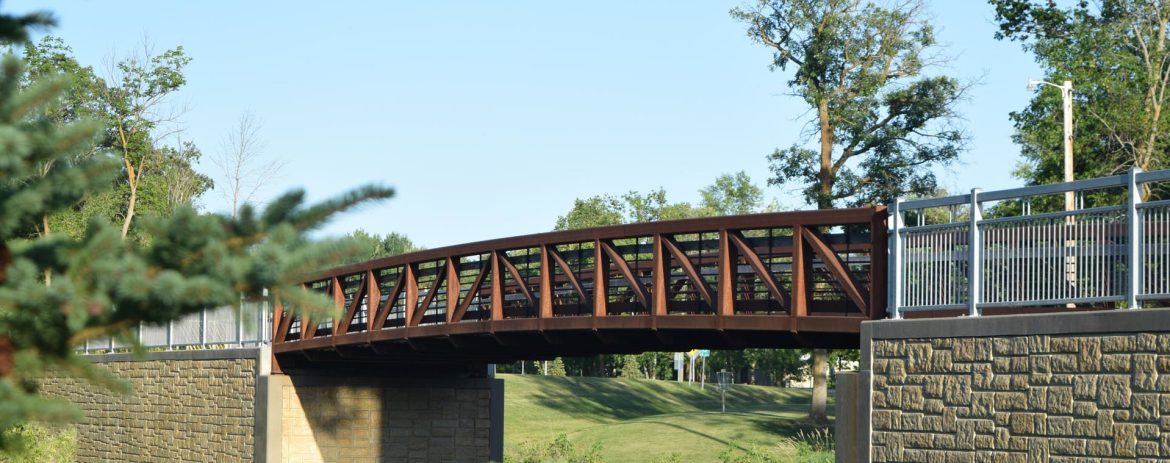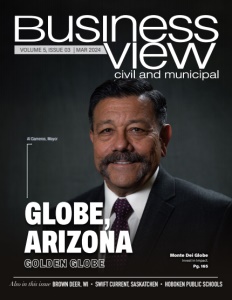Roseau, Minnesota
Expertly Redefining the Meaning of Small-Town
The center of everything in a rural county
By most accepted standards, a “small town” is generally understood to be a municipality with a population of 2,500 to 5,000 people. A “village” has a population of about 1,000 to 2,500, and a “tiny village” has even less than that. With a population just above 2,700, Roseau, Minnesota, located a mere 10 miles south of the Canadian border, would be expected to fall somewhere in the small town/village category. And yet, Roseau is, indeed, a city. It is also the county seat of sprawling Roseau County in the northwestern part of the state, which, itself, only has a population of about 15,000.
And so, this city, county seat, and regional center for business, commerce, and government – because of its size, its relative isolation from any major population centers, its active and engaged citizenry, and its visionary leadership has vigorously leaned into its identity as a unique synthesis of strong village culture, small-town feel, and big-city opportunities and amenities.
A unique community
“I always thought Roseau was a very unique community,” says Community Development Coordinator, Todd Peterson. “When I moved here 28 years ago, I didn’t know much about it. I didn’t realize how unique it was to have a community with a vast array of big city-esque attributes but a small-town feel. There are connections that you make in a small-town community that you can’t replicate in a metropolitan area, but Roseau still has the opportunities that you can’t typically find in a small town. So, it’s very different from most small towns in its opportunity, but similar in terms of the connections that are there. It’s special.”
Founded in 1895, Roseau was originally a mill town – lumber and grain. It was also a farming community up until 1954, when David Johnson, Edgar and Allan Hetteen created Polaris, today the country’s leader in snowmobile and ATV (all-terrain vehicle) production, and global leader in powersports. “So, Polaris is kind of the foundation of the community; it’s been what’s kept the community growing when most farm communities in the region began to decline,” Peterson explains. “Farms got bigger and communities got smaller and lots of people moved to places where there was a manufacturing base. Roseau was very fortunate to have Polaris.”

A manufacturing mecca
Today, Polaris Inc. maintains three-quarters of a million square feet of manufacturing, assembly, research & development, and administrative space within Roseau, employing approximately 1,500 people. Over the past several years, it has put close to $35 million in plant updates and expansions. Another major employer is Marvin Windows and Doors, the world’s largest made-to-order window and door manufacturer, headquartered in Warroad, 22 miles to the northeast of Roseau, on the banks of Lake of the Woods.
Mark Karl is the CEO of Karl Manufacturing Solutions, Inc., another manufacturing company in Roseau that currently employs about 85 people. He believes that all of these local manufacturing enterprises provide a fertile environment for new businesses to come to Roseau to plug into its already existing and efficient network.
“For our small area, we have the abilities of larger communities in the types of technologies, expertise, and people that we have within our factories and facilities throughout the area,” he says. “You don’t need to travel far to get what you need to be done; whether it’s machining technologies or fabrication technologies, it’s all in this area.”
“Manufacturing has evolved and certainly has helped as a foundation, but there are other parts of our community that have helped, as a whole, to round out the equation,” exclaims Kellie Roth, Head of HR for Polaris’ Roseau Operations.
“Along with that have come other opportunities for our community and infrastructure. For example, we’ve got great healthcare provided by a regional hospital and clinic to help support the community.” Roth is referring to LifeCare Medical Center, which employs another 450 people in its main critical access hospital in Roseau and throughout its various other medical and care services throughout Roseau County.
Roseau’s businesses expand their roles
“There’s a sense of civic responsibility in the city that runs strong,” Roth explains.
“At Polaris, we step in to support the community, more so, maybe, than a typical manufacturer in a larger metropolitan area might. For example, years ago, it was recognized that we needed help to bridge the down payment assistance gap for someone interested in building or buying a home because we were offering solid-paying jobs in the area and several could afford mortgage payments, but people needed a little help to save up that money for the down payment. So, employers throughout the county, as well as the City of Roseau, came together to pool funds and created the Roseau County Affordable Housing Fund that, to this day, is helping people get into homes with down payment assistance.”
Another example of local businesses thinking outside the box in Roseau was their financial support of the Eleven01, a 37-unit apartment building that opened for occupancy in 2022.
“Housing is an issue because we don’t have a big population center nearby we can draw from, typically, businesses are recruiting from other areas and you need places for those people to live,” Peterson notes. The problem in Roseau is that the private sector isn’t very interested in developing housing because the payback takes so long. “We were unable to find developers that saw value in building in a smaller community – too much risk and not enough return,” he explains.
The city creates housing
The City now offers a 24-unit apartment building that opened in 2004, and the 37-unit, $6.8 million Eleven01. Both are owned by Roseau’s own Economic Development Authority (EDA). The Eleven01 was financed by a mix of bonds and cash from the city and the Northwest Minnesota Multi-County Housing and Redevelopment Authority, state funds from a grant program for the construction of workforce housing, and donations from local businesses. Polaris, alone, donated $100,000.
“We developed two apartments and we’re looking at a third,” Peterson relates. “The city also got involved in subdivision developments because, again, private developers can’t see enough return on investment.”
Fabian explains. “The previous mayor and council before I came on board had some creative ideas. They sold the lots and then after a house was built, and you’re hooked up to the city sewer, water, garbage, and electricity, a $7,500 rebate was provided to subsidize the overall development. That helped reduce the cost to new homeowners, but discouraged speculative lot buying. As we move forward with more projects, I hope that we can continue to create incentives, but at the same time make sure that we’re covering our costs to do those things.”
“We’ve had lots of housing growth, which resulted in new infrastructure being extended further out and we’ve built a lot of trails and parks across the community. We recently completed a $4 million expansion at the airport and the city and State of Minnesota are working on two very large projects on both main highways coming into the community. So, there’s been a lot going on since 2002 when the city was impacted by a significant natural disaster and there have been a lot of changes in the community.”
New business growth
Peterson reports that the Roseau Industrial Park on the city’s west side, for which the city provides full infrastructure, including water, sewer, stormwater drainage, paved streets, electricity, natural gas, and high-speed internet, is growing rapidly. “We’ve sold quite a few lots in the industrial park over the last few years and we’re seeing lots of new business,” he notes.
Karl shares that the Roseau County Highway Department recently moved its operations to the Park while its former building is being renovated, partly into a manufacturing facility and partly into an innovative daycare center to increase daycare options in the region. Other new businesses in Roseau include Tractor Supply, O’Reilly Auto Parts, and Northern Resources, a supplier of seed and fertilizer.
Sinnamon Krings, Roseau’s Promotions Director, adds, “Our business sector is strong, whether it’s the small mom-and-pops, all the way to our large manufacturers. There’s a sense of community pride in keeping our businesses here and supporting them. Our EDA helps small businesses and offers loans for anyone interested in starting up a business.”

City projects
“Hockey is a very big thing here in town,” Fabian continues “The city has applied for funding assistance to get our historic Memorial hockey arena, which was built in 1949, listed on the National Register of Historic Places. If we get that done on the state and federal level, it could open the door for funding to continue to maintain and improve the wonderful historic structure. Some of the items the city would like to address in our arena include a leaking roof and the arena’s ice- plant which is nearing the end of its life.”
“We have a host of projects coming up here in town,” Todd Peterson adds. “We recently approved a grant application to the State of Minnesota Workforce Housing grant program to develop another apartment building. That would be a 39-unit apartment, very similar to the Eleven01 that opened a year and a half ago.”
“We were able to secure $5 million in state and federal government funding for a major storm sewer project that is necessary to facilitate the rebuilding of Highway 89 going north and south into and out of Roseau. We were also able to secure $2 million for a walking bridge that’s going to go across the Roseau River on the northern part of town that will complement the one that we have going across the river on the south end of town. On Highway 11, we’re going to repave and upgrade with new sidewalks, curbs, and streetlights.”
A unique city
In the end, Mayor Fabian says that what makes Roseau unique is that everyone believes that the people, the businesses, and the government are all working together for the greater good. “I like our teamwork attitude,” he exclaims.
“We have quarterly meetings where we have people come together from those entities talking about what’s going on, what the future holds, what are the issues out there on the horizon, and how do we deal with them? So, there’s a great sense of teamwork, and coming from a coaching background, it’s something that I really buy into and it’s something that I encourage.”
Peterson agrees: “You can’t get much done in a small community if you don’t work together because no one entity has that much funding and people. It does take teamwork and this community is very good at it.”
So, is Roseau, Minnesota a small town? A village? A city? Actually, it’s all three. According to the Mayor Fabian, it’s also “the greatest place on earth.”
AT A GLANCE
Roseau, Minnesota
WHAT: A small city of 2,700
WHERE: In Roseau County, northern Minnesota
WEBSITE: www.city.roseau.mn.us
PREFERRED VENDORS
Karl Manufacturing Solutions – www.KMFGSolutions.com and Heatmor – www.Heatmor.com
Karl Manufacturing Solutions is a family owned and operated business with 4 locations throughout the United States and 1 in Mexico. They specialize in multiple different decoration processes, logistics, assembly, welding and fabrication. Karl Manufacturing Solutions is always looking to find new ways to adapt and improve efficiency.
Heatmor has been manufacturing stainless steel outdoor furnaces for over 30 years. Built to last with an industry leading Lifetime Warranty to back it. They also manufactures stainless steel outdoor fire rings, grills, and high end safes. While they are continuously manufacturing new products to fit the clients needs, their products are always designed and produced to last.



